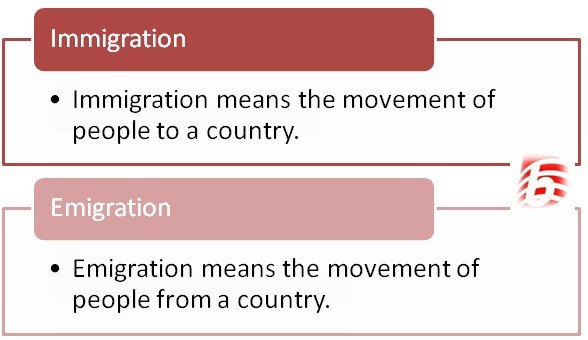Immigration vs Emigration
Immigration and emigration are two terms frequently used when discussing travel between countries. Both words are derived from Latin and are often mistakenly interchanged due to their similarities. However, it is essential to understand the differences between immigration and emigration, as well as the meanings of each term.
What does Immigration mean?
Immigration refers to the movement of people into a country. Derived from the Latin word “immigrare,” which means “to go into,” immigration is often understood as moving into a country. An immigrant is an individual who moves to another country. There are strict laws regarding immigration, as host countries are primarily concerned about their own citizens leaving.
What does Emigration mean?
Emigration, on the other hand, refers to the movement of people away from a country. The term is derived from the Latin word “emigrare,” which means “to move.” While both immigration and emigration involve moving, emigration specifically refers to people moving out of a country. An emigrant is a person who moves away from their home country. Laws surrounding emigration are generally less strict than those for immigration. Emigration typically occurs for various reasons, such as seeking better job opportunities, living conditions, or escaping war.
Key Takeaways
- Immigration refers to the movement of people into a country, while emigration refers to the movement of people away from a country.
- Both immigration and emigration involve movement but differ in the direction of the movement.
- Immigration laws are generally stricter than emigration laws, as host countries prioritize their citizens’ concerns.
